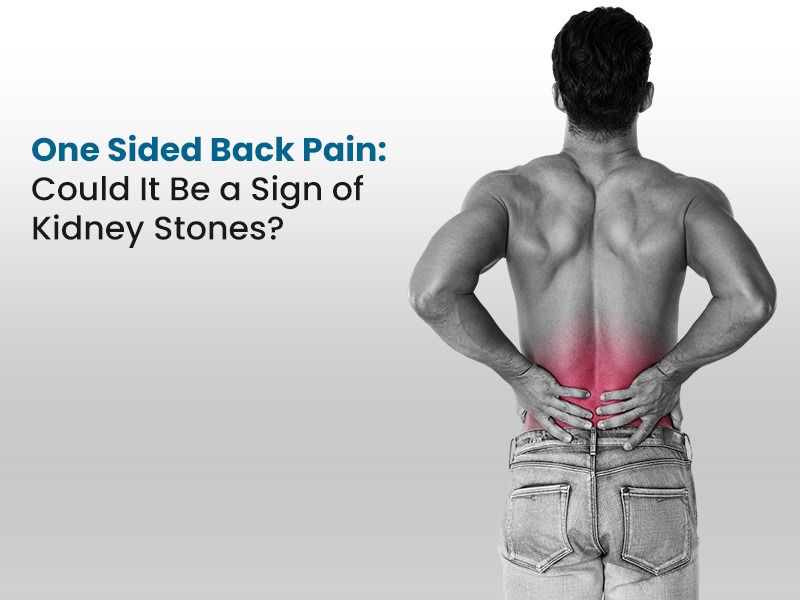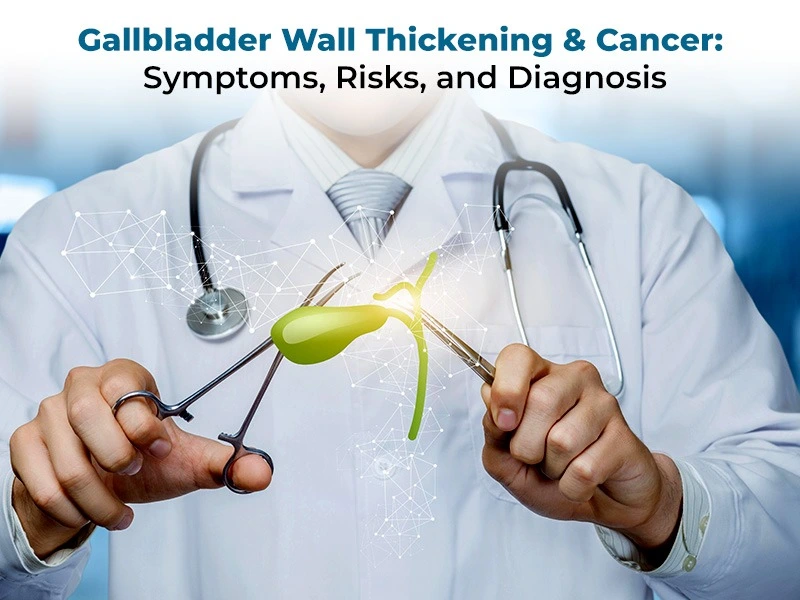You must often hear, "You reap what you sow"; this is particularly true when it comes to health. Kidney stones are a growing concern for many individuals, especially those who tend to remain dehydrated or spend long hours in hot places.
Many recognise them with one of the most common kidney stone symptoms, the one side back pain. But they aren't the sole reason for the pain you may experience in the back. Instead, the back pain itself is of several types.
Are you also curious about the reasons for back pain, the possible types, kidney stones, their possibility, and other related topics? Let's find answers to these in the article below, which is based on consultation with the best urologist in Mohali.
Why Does Back Pain Happen?
Your back supports you in nearly every move you make. Sitting for hours, bending, driving, exercising, sleeping on a soft mattress, or even stress can irritate the back's muscles and joints. These everyday causes usually improve with rest, gentle stretching, and heat.
The kidneys sit on either side of the spine, just under the rib cage. When a kidney becomes irritated, swollen, or blocked, it sends pain signals to the same area. Kidney-related pain rarely improves with simple stretching or rest, which makes it important to notice how your symptoms behave.
Types of Back Pain
Every backache has its own specific cause. Understanding the character of your pain gives a clue to what is happening.
Muscle pain
This often feels like soreness, stiffness, or a dull ache. It may worsen when you twist or lift something. You might recall a moment when you strained yourself.
Joint or spinal pain
It may feel sharp in one spot and become worse when standing or sitting for long periods. It might travel down the leg due to nerve pressure.
Kidney pain
This usually appears on one side of the lower back. It may feel deep and sharp, sometimes coming in waves. Movement does not change it much. The pain can spread to the lower tummy or groin as a kidney stone travels.
If your pain feels different from your usual back discomfort, do not ignore the message your body is sending and connect with the best urology hospital in Gurgaon as promptly as possible.
Can You Have Kidney Stones?
Kidney stones form when minerals and salts in the urine collect and harden; the probability is higher in urinary retention. They can sit quietly inside the kidney for months or years, causing no trouble. Pain begins when a stone tries to pass through the narrow tube that carries urine from the kidneys to the bladder.
You are more likely to deal with kidney stones if:
You do not drink enough water
Your diet is high in salt or animal protein
You have frequent urinary infections
You have a family history of kidney stones
You sweat a lot and forget to hydrate properly
You take certain medications or supplements
Stones vary in size, from tiny grains to larger ones that can block the kidney. Early attention prevents severe pain and infection.
What All Signs to Take into Consideration
The approach taken at the best urology hospital in Gurgaon is to look at the whole picture. One sided back pain that relates to kidney stones usually brings a few other hints.
Pain comes in waves
It can start suddenly, rise sharply, then calm down before returning again.
Changes while urinating
Burning, difficulty passing urine, or a frequent urge to go, even if very little comes out.
Blood in urine
The colour may look pink, red, or brown as the stone may scratch the delicate lining.
Nausea or vomiting
The body sometimes reacts strongly to severe pain inside.
Fever and chills
It could mean infection and needs urgent medical attention.
Think of these symptoms as puzzle pieces. The more pieces you notice, the clearer the picture becomes.
Get Clarity Out of Confusion
Back pain can make anyone feel worried, especially when it strikes without warning. The key is not to jump to conclusions on your own. If you have strong one-sided pain that refuses to settle or comes with changes in urination, reach out to a medical professional, like the best urologist in Mohali.
A quick scan or urine test can bring answers and guide proper treatment. Drinking more water, reducing salt intake, and managing diet can lower the risk of stones returning. Your body always tries to speak to you. When your back calls for help, listen closely and do not delay. Clarity with Park Hospital leads to comfort and better health.
In case you are even diagnosed with kidney stones, you need not worry excessively. With modern sciences and technologies like kidney stone laser treatment, you may get relief in no time.
FAQs
How do I know if my back pain is from kidneys or muscles?
Kidney pain usually sits deeper, often near the lower ribs on one side, and may come with symptoms like burning while passing urine, fever, nausea, or changes in urine colour. Muscle pain is usually linked to movement, improves with rest, and feels sore or tight when you press the area.Where exactly does kidney stone pain start?
It often starts on one side of the lower back or flank area, just below the ribs. The pain may move towards the lower abdomen or groin as the stone travels down the urinary tract.Can kidney stones cause pain that comes and goes?
Yes. The pain can come in waves because the stone shifts and blocks the flow of urine at different points.How long does kidney stone pain usually last?
It varies. Pain can last from a few hours to several days, sometimes longer if the stone is large or stuck. Medical evaluation is important if the pain is severe or persistent.- Is one sided back pain always a sign of kidney stones?
No. Many other issues can cause one sided back pain, such as muscle strain, nerve irritation, or spinal problems. Kidney stones are only one possible cause, especially if other urinary symptoms are present.



